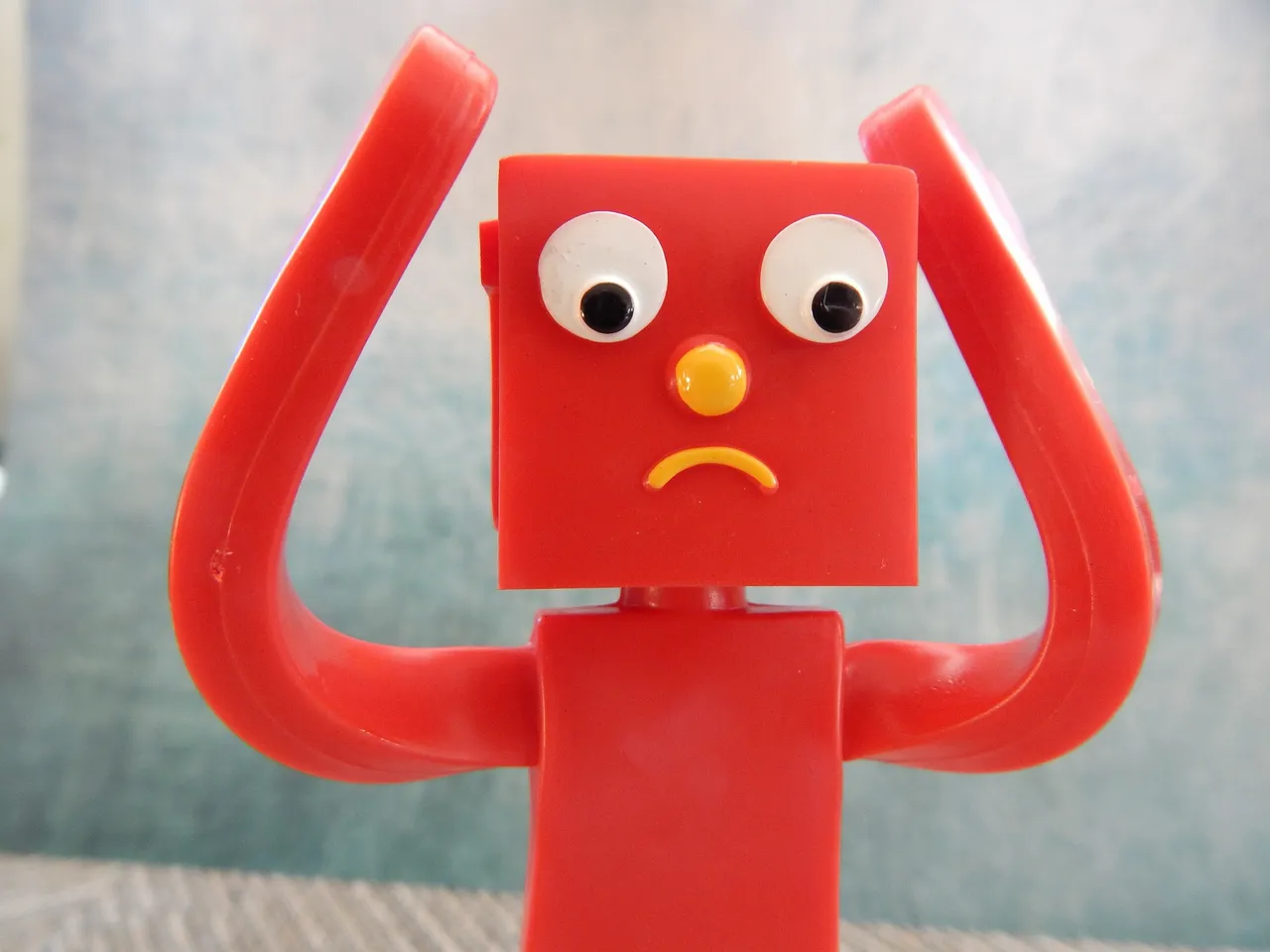
Last time (like a decade ago) I posted an article about having a vacation and what it does to your mental health.
Let me remind you - it does you good :)
At the end of my article, I stated that the effect of a vacation fades away in a couple of weeks. So, if you really want to deal with your high-stress levels, you should definitely do something more than booking a vacation once a year.
But first of all, what is stress exactly?
In Psychology Dictionary stress is defined as:
(Stress) is the state which is seen in response to internal or external stressors. Every system of the body responds to stress in varying ways. Stress enlists changes affecting almost every system of the body, influencing how people feel and behave.
A stressor could be a physical one like temperature, pain, chronic illness. Or a psychological one like a situation, a person, or an event.
According to the Center of studies of the human stress, psychological stress occurs as a phenomenon when one is being put in a situation of:
- Novelty - You have never experienced the event before
Remember the first time you flight? Or the first time you drove a car? Did you get your heart pumping? Did your hands tremble with serges of adrenaline? These are all signs that you were under stress.
- Unpredictability - You were surprised and didn’t expect the event/ the situation
For example, all of the sudden your boss gives you an entirely new task and your agenda is full up already
- Threat to the ego - Your competence is questioned
Imagine you are making a presentation at work and a colleague never stops asking hundreds of questions as if she or he is questioning your authority. You will probably start sweating. This is another sign that you are stressed.
- Lack of control - You feel like you don’t have any control over the situation
Let’s say you are in a hurry for an important meeting and you can’t find a parking spot. Probably your stomach will crunch and your throat will become sore. These are other stress responses of the body.
As @dysfunctional stated in a post about fear, it is not necessary for a certain event to *happen” in order to be perceived as a stressor. Anticipating an event and imagining what would happen could be as stressful as passing over it (or even more stressful). As @dysfunctional pointed out, our brains can’t tell the difference between imagining a stressor and facing it in reality.
But is stress so bad after all?

Well, let’s see how stress could affect one’s health.
Brain
It affects your brain so that you could feel desperate, nervous, irritable, angry or sad. You could lack energy and have headaches. You may experience memory problems, suffer from sleeplessness or poor concentration. You might start having mental disorders like anxiety, panic attacks or depression.
Heart
Stress also affects your heart. You may experience faster heartbeat, palpitations or a rise of blood pressure. Stress increases the risk of high cholesterol and of a heart attack.
Stomach
You could have nausea, stomach ache or heartburn. You may gain or lose weight due to an increased or decreased appetite.
Pancreas
Stress increases the risk of diabetes.
Intestines
You could have diarrhea, constipation or other digestive problems.
Reproductive organs
You could experience reduces sexual desire, irregular periods for women, or low sperm-count and impotence for men.
Furthermore, your immune system will probably be affected so that it is more likely for you to get ill. You will also recover more slowly from illnesses. Skin problems like acne or dermatitis could also be triggered by high levels of stress. (3, 7).
You wonder how does it happen?
In 1936 the Hungarian-Canadian endocrinologist Hans Selye conducted serial experiments with rats which revealed the consequences of stress to the body. He injected mice with a variety of noxious agents but got the same respond (swelling of the adrenal cortex, atrophy of the thymus, gastric and duodenal ulcers). Thus, he concluded that there should be a general “state” of the body which causes these symptoms. Later he called it “stress”. He managed to expand his theory to humans, demonstrating that a break-down of the hormonal system due to stress could cause heart disease and high blood pressure (4, 5, 6).
Selye continued his research and developed a theory for the so-called “ General Adaptation Syndrome” (GAS). GAS is a process that the body goes through when it is exposed to stress. Selye examined the stress response and concluded that it comprises three phases:
Alarm reaction
When a stressful event is registered, it is followed by an activation of the hypothalamic-pituitary-adrenal system. The adrenaline boosts one's energy and prepares them for a fight or a flight. The blood pressure and the heart rate go up. The level of the blood sugar in the body also increases. A stronger blood flow to the muscles occurs. Muscle tension also increases. The cortisol and the cortisone in the body suppress the immune system. On the other hand, there is a decrease in the production of hormones by the reproductive system. (2,10, 11)Resistance
In this stage, the body tries to adapt to the stressor after being mobilized in the previous one. In other words, the body tries so to calm down in order to cope more effectively with the stressor. There is a reduction in the intensity of endocrine and sympathetic activity, although it is still higher than normal, but lower than the alarm phase. The body aims to regain its inner balance (homeostasis).
In case that this phase continues longer than usual, the body's adaptive energy reserves may decrease significantly. One may experience fatigue, irritability, loss of concentration, and lethargy (2, 11).Exhaustion
The defense systems of the body are worn out. Even a minor additional stressor causes a huge response. Persistent or chronic stress is associated with an increased level of cortisol curculating in the body. This is thought to have an adverse effect on different systems like the digestive system, circulatory system, the immune system, etc. On the other hand, adrenal exhaustion has an adverse effect on the levels of blood sugar. Reduced energy levels and low blood glucose could trigger symtoms like reduced tollerance to stress, colic and gastric ulcer, high blood pressure, heart attacks (2, 6, 11.
Ugh, stress is not the best thing in your life, right? Let’s just do something and get rid of it, OK?

Well, bad news. It is simply not possible. Stress is a part of our lives.
I know what you are thinking. But, no, hiding deep in a rabbit hole to avoid life (sorry, stress) is not an option. Rabbit holes are not stressless. Ask Alice from Wonderland. She almost got herself killed there.
Escaping stress is like escaping life.
However, as I stated in my previous post, taking a vacation could help. You will definitely feel better and will have fewer physical complaints (1). However, vacations cannot do all the work as far as stress management is concerned.
Rabbit holes are not stressless

That is why I decided to dive a little bit deeper and dig out what actually helps us deal with everyday stress. Don’t worry! I am not going to list 5 easy steps to stressless life that never work. We will talk about your personal coping style which more or less shapes your life. It simply does one thing: it helps you deal with the obstacles you meet.
In my next series of articles, we will explore different coping strategies and how they make us act the way we act, thus inevitably affecting one's well-being.
But first of all, I need to gather some empirical data from you :) I will be grateful if you share how you deal with stress. Besides being curious, I think it could be extremely helpful for other people.
Thanks for spending your precious time reading this article. I hope I see you around.
Created by Valeria Sim, @insight-out.
All rights reserved.
References:
(1) Fritz, C. and S. Sonnentag, Recovery, well-being, and performance-related outcomes: the role of workload and vacation experiences. Journal of Applied Psychology, 2006. 91(4): p. 936.
(2) Selye, H. (1950). Stress and the General Adaptation Syndrome. British Medical Journal, June 17, 1383-1392
(3) Schneiderman, N., Ironson, G., Siegel, S. (2005). STRESS AND HEALTH: Psychological, Behavioral, and Biological Determinants, Annu Rev Clin Psychol. 2005; 1: 607–628.
(4) https://en.wikipedia.org/wiki/Hans_Selye
(5) https://www.britannica.com/biography/Hans-Selye
(6) http://www.pearsoned.co.uk/bookshop/minds/rexpress/questions/psychology/9-stress-answers.pdf
(7) http://www.mentalhealthamerica.net/conditions/stress-coping-everyday-problems
(8) https://humanstress.ca/about-cshs/
(9) https://psychologydictionary.org/stress/
(10) https://psychologenie.com/stages-of-general-adaptation-syndrome-model-by-hans-selye
(11) https://www.medicalnewstoday.com/articles/320172.php
Images (Under cc0 Creative Commons):
https://pixabay.com/en/frog-figure-files-stack-1339892/
https://pixabay.com/en/monster-comic-cartoon-funny-1233393/
https://pixabay.com/en/upset-sad-confused-figurine-534103/
https://pixabay.com/en/time-too-late-disneyland-minute-1786138/